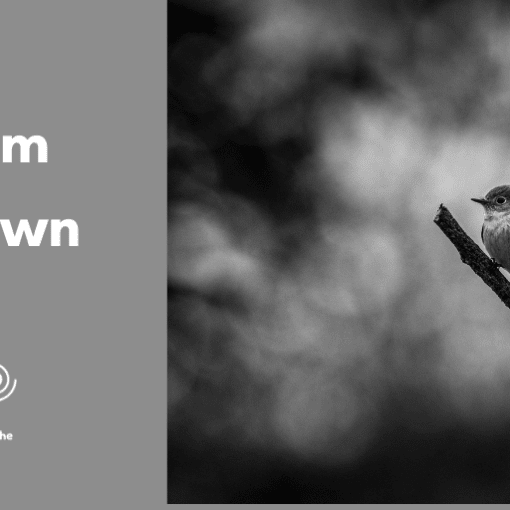She crossed a line with her words, a line that was getting thinner with every wag of the tongue, but what could be done to help them both?
It was the evening of the very first day of the year (2025). A beautiful summer’s day here in New Zealand.
But in this quiet, I suddenly heard screaming and yelling. Every second word was the F word.
I looked down the road and saw a very large man woman and a man on the pavement.
He was kneeling on the ground in front of her. It was almost like he was praying/ begging in front of her. She was towering above him and shouting at him.
Words and more ‘F’s’.
More words, more ‘F’s’.
It was violence. Verbal violence.
She kept hitting him with words, words, words. Punch after punch after punch.
Ten minutes later, the noise had stopped, and I looked to see what was happening. He was still kneeling on the ground, and now she was kneeling beside him with her arms around him.
A few minutes later, they wandered past my house.
I couldn’t see his face. It was under a hoodie, but his entire posture was like a little boy having been whipped and beaten into submission.
I thought of the mechanics of his mind.
Perhaps he now just wanted to die.
Shame, control, reward, domination, passivity, enslavement, depression, loss of hope, piece of dirt, self hatred, internal violence, external passivity, death, impotency to do anything.
The thought of this man moving into his world and making a difference was long gone. He was impotent. The potency and masculine energy was crushed.
Was there beauty in her? I couldn’t see it.
There was nothing there that drew me to wanting to know God more.
Perhaps the compassionate holding of the man was beauty, but maybe it was a manipulation? Maybe it was all part of a power play she had perfected from childhood. Punishment, then reward, brings compliance.
Verbal violence
I’ve often thought that what a man can do with his fists, a woman can do with her tongue.
I know that is a gross generalisation, but I’ve seen it too many times for it not to have an element of truth.
Men get abused too.
I know men can punch and scratch with words, too.
But in this instance, the woman was lashing him with her tongue and the entire world could see it. Another shaming factor.
Verbal violence can come, not only like a flow of vomit, but it can also be like little cuts and scratches to the delicate places of the soul. Little sentences said here and there like pin point daggers.
Verbal violence comes in many forms. Abuse in any form is not ok.
I watched him crawl away.
Again, I want to say, men can be equally violent with their tongues.
All of us need to learn to be gracious in speech.
Be gracious in your speech. The goal is to bring out the best in others in a conversation, not put them down, not cut them out. Colossians 4:6
They crossed a line
To cross a line is to behave in a way that is not socially acceptable.
We all should know the norms of what is acceptable and what is not. What is the line that should not be crossed?
But for some, those lines may not have been taught, or reinforced.
I recall this story from Craig Barnes.
When I was a child, one day my father brought home a twelve-year-old boy named Roger.
Roger’s parents had both died of a drug overdose.
As this family’s pastor, my dad had done all he could to intervene, but to no avail.
When it became clear to my parents that there was no one else who cared about this boy, they decided to raise him as one of their own sons.
From the day he walked into the door, Roger became my joint heir in the family.
He stayed with us until he had grown up and joined the army.
My parents did a wonderful thing in making Roger part of family, but it created a lot of work for him.
You can imagine that growing up in the home of heroin addicts was far different from what Roger discovered in the home of my pietistic parents.
I can’t count the number of times I heard my parents say, “No, no, Roger, that’s not how we act here.You don’t have to fight or scream or hurt others to get what you want. No, no, we expect you to act differently here.”
With his parents constantly stoned, Roger had spent the first twelve years of his life consumed by fear, and, by necessity, completely self-absorbed.
He even used to wonder if there would be enough food for him to eat.
But now, in his new home, he had to learn about sharing things and demonstrating good manners and doing family chores.
Most of the hard lessons Roger learned at our home took place around the family table.
Time and time again I heard my parents teach him how to pass food, how to eat slowly, how to speak politely, and how to clean up afterwards.
Through it all, they were teaching him how to live out his identity as a cherished son. Craig Barnes Sacred Thirst
Roger was learning the lines. What was socially normal, appropriate, and acceptable.
I failed to uphold a line
The next day, after all the abuse, I realised I had failed them both. I didn’t confront the abuser, and I didn’t connect with the victim.
I walked by the man in the ditch while the robbers were stripping him naked. (Story of a dehumanised man: Good samaritan)
I could make all the excuses
- She was a big woman
- He was a big man
- I could have been hurt
I failed to be like Craig Barnes’ father and say ‘that’s not how we act here.’
I didn’t uphold the line that abuse in any form is not ok.
It then got me thinking about women being violent to men.
I google searched ‘women violence against men’ and it came back with recommendations for Women’s Refuge, a wonderful New Zealand Refuge for Women suffering domestic violence.
I wonder if there is a men’s branch?
The statistics are terrible. Violence Against Men & Boys in New Zealand
They built a line
Perhaps you have been the one who has had lines crossed. Someone has crossed a line and abused you, put you down.
It might be with words or with physical violence.
Abuse comes in many forms.
The need is to build a line. A line that defines what is acceptable and what is not. This is who I am, and this is not.
Some people have had so many lines crossed that they don’t see they have any lines at all.
It’s like they are not even there. They are simply something for others to pass through, take what they want, move on.
One of the most beautiful and meaningful activities I have seen is when I have helped someone to define the line.
They begin to see a beauty within, a purpose, and a potency to move into this world and make a difference.
It’s hard to write a description of this, but what if you were to lie on a large piece of paper and then have someone trace around your body shape with a pen?

You stand up, and there below you is a line defining the shape of you.
Then into that profile you write words. You draw pictures. You paste images cut from magazines.
Inside your line is your ‘I’. Who you really are. Likes, dislikes, hopes, dreams, desires, plans.
The line stays there.
Outside of your line are the ‘We’ and the ‘Work’.
Your lines define you.
So, as Mary Oliver would say …
Tell me, what is it you plan to do
with your one wild and precious life?
Questions?
Comments?
Email me 🙂📨
barry@turningthepage.co.nz
Give a little gift to keep the pages turning
Quotes to consider
- What types of abuse do men suffer?
Men can experience the same types and tactics of abuse as people of all genders do, such as stalking, harassment, physical, psychological, and sexual abuse. However, the way men face or perceive abuse can be different. For example, men may believe that physical abuse is not an effective control tactic because they still feel powerful and physically able to stop the abuse.
Psychological abuse, which is one of the most common forms of domestic violence experienced by men, usually targets a man’s masculinity. Men are usually accused of not being “manly” enough, not making enough money, being weak, or crying when abused. While most men may not fear physical violence, they may fear the degradation and humiliation that comes from psychological abuse, especially in public. Womens law.org Male Victims
- ‘Spiritual friends see a facet of Christ in us and bring it out as no one else can. And they delight to do so. When they see what is unique about us, it causes them great delight; and then, giving away to the powers of daring imagination, they envision what we could become.
The vision excites them – with Paul, they see us where we are and feel the pains of labor till Christ is formed in us (Gal. 4:19).’ Larry Crabb. The Safest Place on Earth - Love wins over guilt any day. It is sad that we settle for the short-run effectiveness of shaming people instead of the long-term life benefits of grace-filled transformation. Richard Rohr When Things Fall Apart
- In the moments of insecurity and crisis, “shoulds” and “oughts” don’t really help; they just increase the shame, guilt, pressure, and likelihood of backsliding. It’s the deep “yeses” that carry you through. Focusing on something you absolutely believe in, that you’re committed to, will help you wait it out. Richard Rohr When Things Fall Apart
- Shame is the raincoat over the soul repelling the living water of Jesus that would otherwise establish us as the beloved of God. Andrew Comiskey
-
Who made the world?
Who made the swan, and the black bear?
Who made the grasshopper?
This grasshopper, I mean —
the one who has flung herself out of the grass,
the one who is eating sugar out of my hand,
who is moving her jaws back and forth instead of up and down —
who is gazing around with her enormous and complicated eyes.
Now she lifts her pale forearms and thoroughly washes her face.
Now she snaps her wings open, and floats away.
I don’t know exactly what a prayer is.
I do know how to pay attention, how to fall down
into the grass, how to kneel down in the grass,
how to be idle and blessed, how to stroll through the fields,
which is what I have been doing all day.
Tell me, what else should I have done?
Doesn’t everything die at last, and too soon?
Tell me, what is it you plan to do
with your one wild and precious life?
Mary Oliver
Questions to answer
- What would you do if you were in my situation that I described above? Why?
- How has verbal violence been a part of your life? How has it affected you?
- What would you want to say to the man and the woman in the story?
Formation exercise
- Get a large piece of paper and do the exercise above. As much as possible, focus on the positive qualities about yourself. How has this exercise helped you define your ‘lines’. Send me a picture 🙂
Further reading
Why Men Don’t Talk. 26 Reasons for Silence
To ‘Turn the other cheek’ mean I have to keep taking abuse?
Even If It Does Me Harm
Barry Pearman





